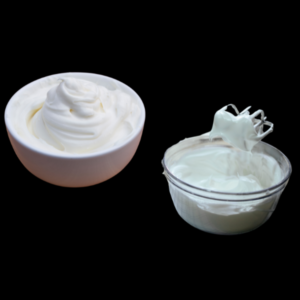
Do almonds have lectins?
If you’re a fan of these delicious nuts, you’re likely aware of their popularity as a snack and key ingredient in various recipes, celebrated for their health benefits..
However, the question of lectins in almonds and the amount that is safe to consume may have crossed your mind.
In this blog post, we will delve into the topic of lectins in almonds and discuss how much is too much.
We will also explore the option of blanching almonds as a way to reduce lectin levels and make them more digestible. So, let’s get the lowdown on almonds and lectins!
Understanding Lectins: What Are They?
Lectins are a type of protein found in many foods, including almonds.
They are naturally occurring substances that can be found in various plants and animals.
So, what exactly are lectins?
Lectins are carbohydrate-binding proteins that have the ability to bind to specific sugar molecules.
They play a crucial role in the defense mechanisms of plants, helping them fend off predators and pests.
While lectins are generally harmless for most people, they can cause issues for those with certain health conditions or sensitivities.
One of the reasons why lectins have gained attention in recent years is due to their potential impact on gut health.
It is believed that lectins can disrupt the lining of the gut.
This can potentially allow toxins and undigested food particles to enter the bloodstream, triggering an immune response and causing inflammation.
Almonds, like many other nuts and legumes, contain lectins.
However, the levels of lectins in almonds are relatively low compared to some other plant foods.
This means that for most people, consuming almonds in moderate amounts should not pose a problem.
There are various ways to consume almonds, including almond flour, almond milk, and whole almonds.
If you’re concerned about lectins, it’s worth noting that certain processing techniques can help reduce lectin levels.
For example, soaking almonds in water or using apple cider vinegar as a marinade can help break down lectins and make them more digestible.
It’s important to keep in mind that lectins are not inherently bad.
In fact, they can offer health benefits, such as acting as antioxidants and potentially reducing the risk of certain diseases.
However, it’s all about balance and moderation. As with any food, it’s important to listen to your body and consume almonds in a way that works for you.
In the next section, we will explore the composition of almonds and delve deeper into the topic of lectins in almonds.
Stay tuned to learn more!

Breaking Down Composition: Do Almonds have Lectins?
Almonds are not only a tasty snack, but they also have a wide range of nutritional benefits.
But do they contain lectins?
Let’s break down the composition of almonds to find out.
Nuts
Almonds are a type of nut that is commonly consumed in various forms, including almond flour, almond milk, and whole almonds.
They are packed with nutrients such as healthy fats, protein, and fiber, making them a popular choice among health-conscious individuals.
But when it comes to lectins, are almonds in the clear?
The answer is yes and no.
While almonds do contain lectins, the levels are relatively low compared to some other plant foods.
This means that for most people, consuming almonds in moderate amounts should not pose a problem.
However, for those with specific health conditions or sensitivities, it may be worth considering the lectin content in almonds.
If you’re concerned about lectins in almonds, there are some techniques you can use to reduce their levels.
Soak
For example, soaking almonds in water or using apple cider vinegar as a marinade can help break down lectins and make them more digestible.
This can be particularly beneficial for individuals who are sensitive to lectins or have digestive issues.
It’s also important to note that processing techniques such as roasting or blanching almonds can help reduce lectin levels.
So if you prefer the taste and texture of roasted almonds or want to incorporate blanched almonds into your recipes, you can still enjoy the benefits of almonds while minimizing lectin exposure.
The Impact of Lectins in Almonds on Human Health
The impact of lectins in almonds on human health is a topic of great interest and concern.
While almonds are known for their numerous health benefits, including being a good source of healthy fats, protein, and fiber, the presence of lectins in these nuts has raised questions about their potential effects on our well-being.
Lectins are carbohydrate-binding proteins that can be found in many foods, including almonds.
They play a crucial role in the defense mechanisms of plants, helping them protect themselves against predators and pests.
However, there is some evidence to suggest that lectins can have negative effects on human health, particularly on gut health.
Some studies have shown that lectins can disrupt the lining of the gut.
This can allow toxins and undigested food particles to enter the bloodstream, potentially triggering an immune response and causing inflammation.
The impact of lectins on gut health can vary from person to person, depending on factors such as individual sensitivity and the overall health of the digestive system.
But what does this mean for almonds?
Well, the good news is that almonds contain relatively low levels of lectins compared to some other plant foods.
This means that for most people, consuming almonds in moderate amounts should not pose a problem.
In fact, the health benefits of almonds, such as their high content of monounsaturated fats and antioxidants, outweigh the potential risks associated with lectins.
If you’re concerned about lectins in almonds, there are some techniques you can use to reduce their levels.
For example, soaking almonds in water or using apple cider vinegar as a marinade can help break down lectins and make them more digestible.
Additionally, processing techniques such as grinding almonds into almond flour or blending them into almond milk can also help reduce lectin levels.
How Much is Too Much? Safe Intake Levels of Almonds
Almonds are a delicious and nutritious snack, but how much is too much?
When it comes to safe intake levels of almonds, it’s important to find the right balance.
While almonds have many health benefits, including being a good source of healthy fats, protein, and fiber, it’s still essential to consume them in moderation.
The exact safe intake level of almonds can vary depending on individual factors such as age, health condition, and overall diet.
However, as a general guideline, experts recommend consuming around 1 ounce (28 grams) of almonds per day. This amounts to about 23 almonds.
Eating almonds in moderation ensures that you can enjoy their health benefits without going overboard.
Too much of anything can have negative effects, and almonds are no exception.
While almonds are packed with nutrients, they are also high in calories.
Consuming excessive amounts of almonds can lead to weight gain and may not be beneficial.
It’s also important to consider your overall diet when determining how much is too much.
If you already consume a balanced diet that includes a variety of fruits, vegetables, whole grains, and lean proteins, adding almonds as a snack or ingredient in recipes can be a healthy choice.
However, if you rely heavily on almonds as a major source of calories and neglect other essential nutrients, it’s important to reassess your dietary choices.
Additionally, if you have any health conditions or allergies, it’s crucial to consult a doctor.
They can provide personalized advice and guidance based on your specific needs and requirements.
In summary, while almonds are a nutritious and delicious food, it’s important to consume them in moderation.
Aim for around 1 ounce (28 grams) or about 23 almonds per day as a general guideline. Remember to consider your overall diet and consult with a healthcare professional for personalized advice.
By enjoying almonds in the right amount, you can reap their health benefits and make them a part of a balanced and healthy diet.
Reducing Lectin Levels in Almonds: Possible Techniques

Reducing the levels of lectins in almonds is a concern for some individuals who are sensitive to these proteins or have digestive issues.
Fortunately, there are several techniques that can be used to help minimize lectin levels in almonds and make them more digestible.
Soaking
One technique is soaking almonds in water.
By soaking almonds in water for several hours or overnight, you can help break down and reduce the lectin content.
This is because soaking activates enzymes that naturally occur in almonds, which can help break down the lectins.
After soaking, be sure to rinse the almonds thoroughly before consuming or using them in recipes.
Marinade
Another technique is using apple cider vinegar as a marinade.
Simply combine apple cider vinegar and water in a bowl, and then add the almonds.
Allow them to soak in the mixture for a few hours before rinsing them off.
The acidity of the vinegar can help break down lectins and make them more digestible.
Blanching or Roasting
Additionally, processing techniques such as blanching or roasting almonds can also help reduce lectin levels.
Blanching involves briefly boiling the almonds and then removing their skins.
This can help remove some of the lectins present on the surface of the almonds. Roasting almonds at a moderate temperature can also help reduce lectin levels, as the heat breaks down the lectins.
It’s important to note that while these techniques can help reduce lectin levels in almonds, they may not completely eliminate them.
The reduction in lectins may vary depending on the specific technique used and the individual’s sensitivity. It’s always best to listen to your body and make adjustments to your diet as needed.
Incorporating these techniques into your almond consumption can help make them more digestible and reduce the potential negative effects of lectins.
Soaking, marinating, blanching, or roasting almonds are all viable options to help reduce lectin levels and make almonds a safe and enjoyable part of your diet.
Experiment with these techniques to find the ones that work best for you and enjoy the numerous health benefits that almonds have to offer.
Expert Advice on Incorporating Almonds into Your Diet Safely
If you’re looking for expert advice on incorporating almonds into your diet safely, you’ve come to the right place.
While almonds are a nutritious and delicious food, it’s essential to consume them in a way that works for you and your specific dietary needs.
Here are some tips and recommendations from experts to help you enjoy the benefits of almonds without any worries.
1. Listen to your body:
Pay attention to how your body reacts to almonds and adjust your intake accordingly.
If you notice any discomfort or digestive issues after consuming almonds, it may be a sign that you need to reduce your intake or try different preparation methods.
2. Consider your overall diet:
Almonds are a fantastic addition to a balanced diet, but it’s important to consider your overall nutritional needs.
Make sure you’re getting a variety of other fruits, vegetables, whole grains, and lean proteins to ensure you’re getting all the nutrients your body needs.
3. Seek personalized advice:
If you have any health conditions or allergies, it’s crucial to consult with a healthcare professional or a registered dietitian.
They can provide personalized advice and guidance based on your specific needs and requirements.
They can help you determine the right amount of almonds for you and suggest alternatives if needed.

4. Experiment with preparation techniques:
Soaking, marinating, blanching, and roasting almonds can all help reduce lectin levels and make them more digestible.
Experiment with these techniques to find the ones that work best for you and your taste preferences.
Remember to rinse soaked almonds thoroughly before consuming or using them in recipes.
5. Practice moderation:
As with any food, it’s important to practice moderation when it comes to almonds.
Aim for around 1 ounce (28 grams) or about 23 almonds per day as a general guideline.
This ensures you can enjoy the health benefits of almonds without consuming excessive calories or potentially overloading on lectins.
Incorporating almonds into your diet safely is all about finding the right balance and listening to your body.
By following these expert tips and recommendations, you can enjoy the numerous health benefits that almonds have to offer and make them a delicious and nutritious part of your daily routine.
So go ahead and snack on those almonds, knowing that you’re making smart choices for your well-being.
Related Articles:
Get the Best Results: Floss Before or After Brushing?
Cup of Goodness: Finding the Best Green Tea for Your Health
Let’s Dish: Is Pasta Healthy for You?
“As an Amazon Associate, I earn from qualifying purchases.”





